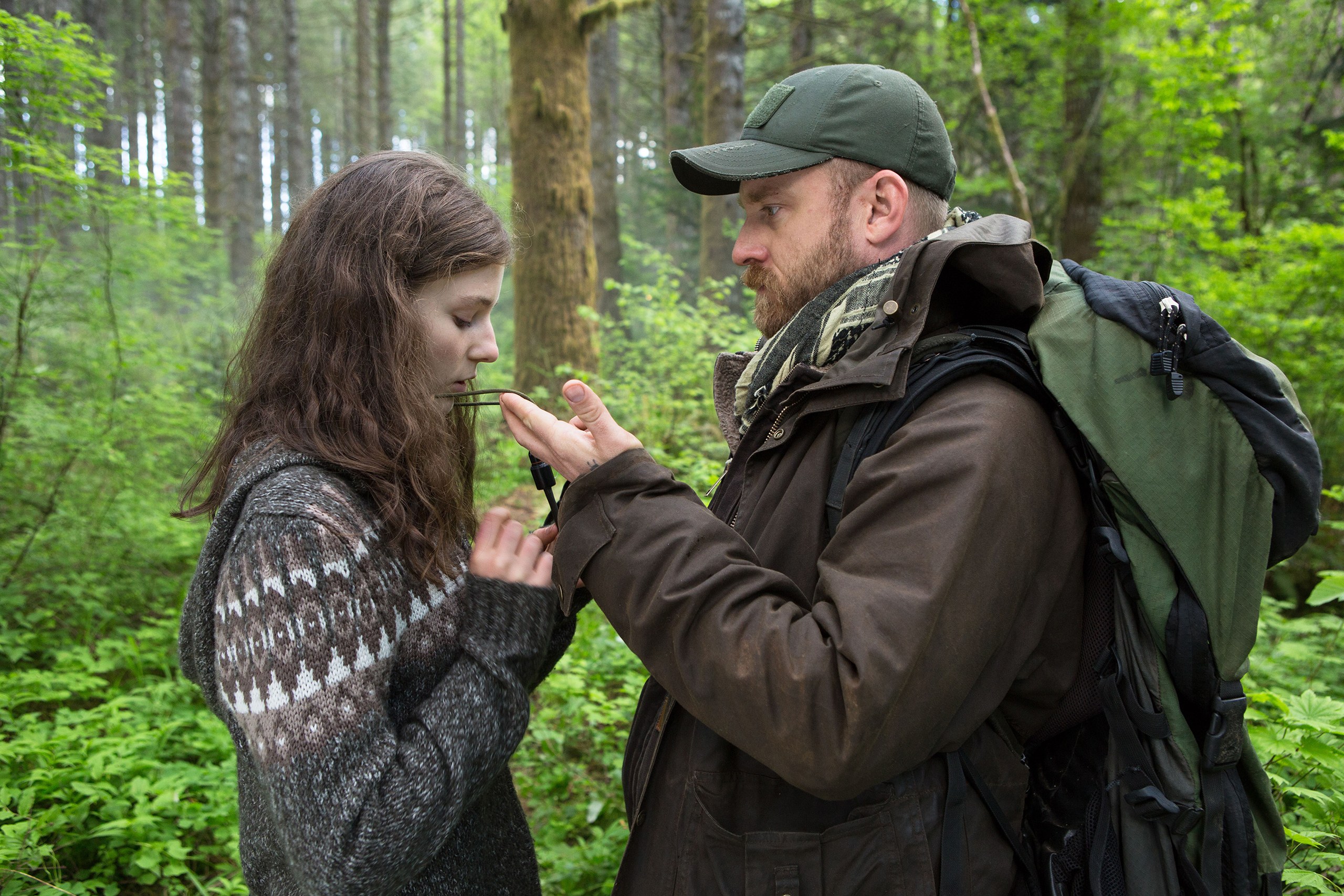
MPAA Rating: PG | Rating: ★★★★★
Release year: 2018
Genre: Drama Director: Debra Granik
I rarely mention this in reviews, but I’m presently in the midst of working on my PhD in theology, imagination and the arts. My research centers on the films of Jean-Pierre and Luc Dardenne, how their films operate as cinematic parables. Now, the term “parable” is evocative and enigmatic, with a variety of possible definitions–the OED uses phrases like “fable,” “allegory,” “apologue,” and even “taunt.” I’ve found philosopher Paul Ricoeur’s description helpful: he says a parable is a conjunction between a narrative and a metaphor, a simple story grounded in ordinary, everyday life yet imbued with an extraordinariness-with-the-ordinary and a mosaic of possible interpretations, all of which provoke an emotional, ethical, and (possibly) theological response in the audience.
I share all this academic stuff because Debra Granik’s masterful Leave No Trace is the very definition of a cinematic parable. A tale of a father and a daughter making their way through the world, the film is striking in its simplicity, yet its generates a genuine sense of awe via its profundity and beauty. The father, Will (Ben Foster) and his teenage daughter Tom (Thomasin Harcourt McKenzie) live alone together in Forest Park within Portland, OR. We enter into their story in media res; there are no explanations, no lengthy backstory or flashbacks indicating why these two have chosen to live mostly off the grid in the lush greenery of the Oregon woods. We’re quietly and lovingly invited into their story, this richly humane parabolic world about what it means to live with and for others.
When Will and Tom are discovered by local authorities, they’re brought against their will into public life. You might have some expectations as to where this story will go: their father/daughter relationship is abusive; the social services and police will turn out to be jerks; it will glorify living in the wilderness rather than the urban system. Yet none of these expected tropes are present in Leave No Trace; as Roger Ebert said in his review of the Dardennes’ Le Fils, we’ve seen too many movies. Leave No Trace subverts our expectations in the best way. Will and Tom’s relationship is complex and there are moments of tension, but it is far from abusive or sexualized. Indeed, I’m hard-pressed to think of a better father-daughter cinematic relationship–they are honest and respectful of each other, and they share moments of both sadness and levity. There are no villains to be seen here; every character is genuinely good, and Granik’s script and camera is careful to view everyone on screen with a sense of care and dignity. Every single person in Leave No Trace is seen and depicted as just that: a person, a human being, a significant Other. Like the Dardennes, Kelly Reichardt (Wendy and Lucy) and her earlier film, Winter’s Bone, Granik points out the beauty and brokenness within the margins of society, the quiet corners where we rarely glance yet are imbued with potential significance and truth.
There are hints that Will suffers from PTSD–his military tattoos (one which clearly says “motherf*cker,” making this the only PG-rated film I can think of with the f-word prominently in it), a trip to the VA hospital, the quiet helicopter noises in the background of his nightmares, and the notable absence of his wife/Tom’s mother all suggest that Will has experienced a deep amount of pain and loss. In this, Leave No Trace is a parable about grief and suffering, carrying one another’s burdens even as we have to establish personal boundaries differentiating between us. As Tom tells Will in a conflict, “I don’t have the same problem as you have.” Yet her words aren’t bitter nor out of pity; she loves her dad immensely, but she is learning that her identity is autonomous from his. Tom is intelligent and observant, quietly demure and clearly capable. McKenzie’s portrayal of Tom is simply remarkable as she communicates a great deal with her bright eyes, open posture, and subtle facial expressions. Foster is also excellent, toning it down from the crazy Ben Foster we may expect, a quiet and caring man who clearly carries a lot of internal pain.
When Will and Tom choose to try to go back to living alone in the woods, their journey takes them into unexpected places and communities until an incident forces them to stay put for a season. In this location, there are two scenes with Tom and a beehive, where she experiences the warmth and comfort of community and trust even as she stands alone as an individual. I’m not entirely sure why, but Tom’s scenes with the bees are some of the most affecting and comforting I’ve seen in film this year, nature revealing its transcendent beauty in the smallness of a honey-making insect. In a world which can feel so overwhelming and angry at times, Leave No Trace is a reminder that there is still good in God’s creation, the extraordinary in the ordinary, if we would only have eyes to see and ears to hear. Ricoeur says that parables have the power to change us as we imagine the world anew through the parable-world’s vision. I believe it; Granik has done just that.
IMDB Listing: https://www.imdb.com/title/tt3892172/
Beautifully written. Thank you
Great review and great film – really one of my favourite films in my 57 years up there with the Apu Trilogy